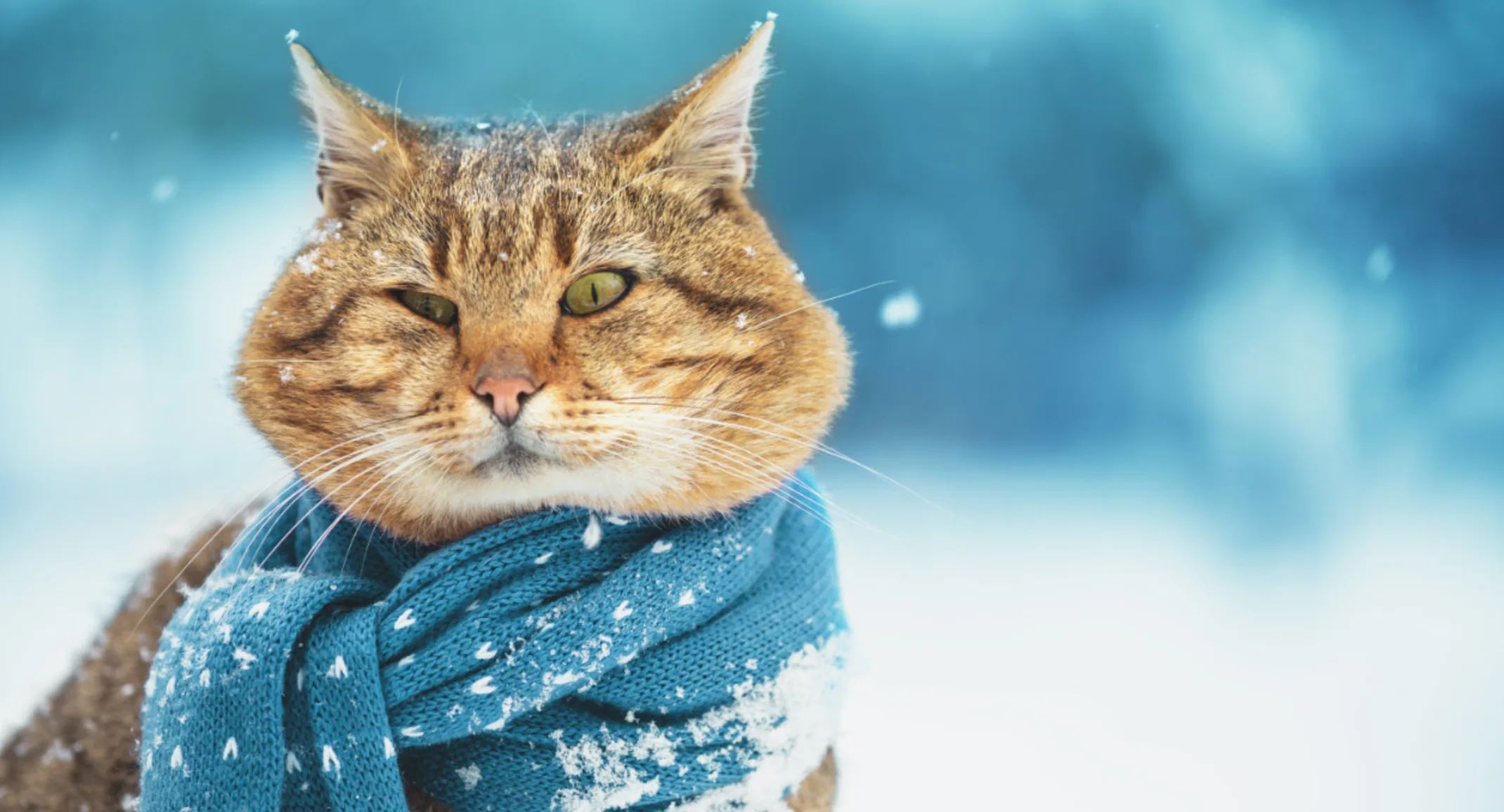The holiday season is here, and while this season is full of joy, celebration, and togetherness, the days also include packed schedules, tempting fatty foods, and distractions—an opportunistic pet’s potential recipe for disaster. Our Mountainside 24/7 Animal Emergency team sees an increase in emergency pet visits during the holidays, and we want to help you avoid the many pet accidents and mishaps that can occur while celebrating the season. Follow our checklist to prepare for your pet’s safety and comfort before the holiday commitments begin distracting you, and prevent a pet emergency during the most wonderful time of the year.
#1: Make holiday pet travel plans in advance
Whether your pet will be tagging along for the ride or staying behind, if you plan to travel during the holidays, plan early for your pet’s well-being—and your sanity. To ensure a stress-free holiday travel experience for you and your pet, follow these tips:
Head to the veterinarian — Schedule a veterinary appointment to ensure your pet is healthy and up-to-date on vaccinations. If your pet will be traveling with you, they may need a health certificate, which only a veterinarian can issue. Check with your destination for specific rules regarding pet travel and required documents. In addition, if your pet experiences anxiety or motion sickness when traveling, your veterinarian can recommend solutions.
Secure your pet’s boarding reservation — The holidays are busy times, and boarding facilities often fill up early around major holidays. To secure your pet’s spot, reserve your pet’s accommodation well in advance.
Make a pet packing list — To help ensure you remember everything your pet needs while traveling or boarding, make a packing list. To help your pet feel comfortable and happy away from home, with you, or at a boarding facility, remember to add these items to their packing list:
Food and treats
Medications
Leash, collar, and identification (ID) tag
A favorite toy
Crate for secure transportation
Detailed instructions if boarding your pet
#2: Pet-proof your home for the holidays
Your holiday pet-proofing must be thorough. Before decorating and welcoming guests, follow these tips to prevent a pet emergency:
Secure your Christmas tree — To prevent your Christmas tree from toppling onto your curious pet, secure the tree with a sturdy base, and anchor the tree to an adjacent wall or the ceiling for additional stability.
Place fragile ornaments out of your pet’s reach — Fragile ornaments can easily fall off your Christmas tree and shatter if your inquisitive pet bats them. Sharp ornament fragments can cause your pet a lacerated paw or mouth, or a gastrointestinal (GI) blockage. Consider switching to shatter-proof ornaments, and placing all ornaments high on the tree and out of your pet’s reach.
Secure electrical cords — Use cord protectors for electrical cords that you cannot place out of your pet’s reach, and unplug tree lights when you cannot monitor your pet around the Christmas tree.
Ensure your plants are pet-safe — Several seasonal plants are irritating or poisonous to pets, if your dog or cat nibbles or eats them, including ivy, holly, mistletoe, and poinsettia. Check out the American Society for the Prevention of Cruelty to Animals (ASPCA) Poisonous Plants guide to learn which plants are toxic for cats and dogs. Choose pet-safe plants for decorating, and keep any potentially harmful plants out of your pet’s reach.
Take care with tinsel — A curious kitty may view tinsel as a shiny toy. Unfortunately, if your cat ingests tinsel, the strands can block their intestines, which may require surgical removal. Skip the tinsel, or place it out of your feline friend’s reach.
#3: Prepare your pet for the holiday hustle and bustle
Holidays can be stressful for you and your pet. Ringing doorbells, visitors, and bustling activity can cause anxiety and fearful behavior. To help safeguard your pet from hectic holiday happenings, follow these tips:
Microchip your pet — During the holidays, your door may be open more than usual because of holiday package deliveries, and coming and going guests, increasing your pet’s chance to dash out and run away. Ensure your pet is properly identified to increase the likelihood they will be returned to you if they go missing. When your pet has been microchipped, you provide them with permanent identification that can’t be lost or removed. Even if your pet has been microchipped, they should continue to wear a collar and ID tag that includes your current contact information.
Provide a pet-safe area — Ensure your pet has a quiet area to which they can escape if your holiday gathering overwhelms them. Place your pet’s bedding and favorite toys in the area, and ensure your guests know they should let your pet chill out when your dog or cat is in their special space.
Talk with your veterinarian — If you know new people or changes to their routine make your pet especially anxious, speak with your veterinarian about medications that can help your pet cope with the holiday chaos.
#4: Prevent your pet from experiencing gastrointestinal issues
Food brings everyone together during the holidays, but many common holiday dishes can cause your pet to experience serious GI issues. To help prevent your furry friend from experiencing an emergency GI condition during the holidays, keep these foods out of your pet’s reach:
Turkey skin, trimmings, grease, and gravy
Ham
Cooked meat bones
Onions and garlic
Chocolate
Xylitol (i.e., substitute sweetener used in sugar-free foods)
Macadamia nuts
Grapes and raisins
Yeast dough
Alcoholic and caffeinated beverages
Preparation greatly reduces the likelihood that your pet will have a holiday emergency, but a mishap can occur no matter how much you plan, and our team is here for you and your pet when you need us most. If your pet ingests toxic ingredients, plants, or dangerous decorations, contact our Mountainside 24/7 Animal Emergency team.

